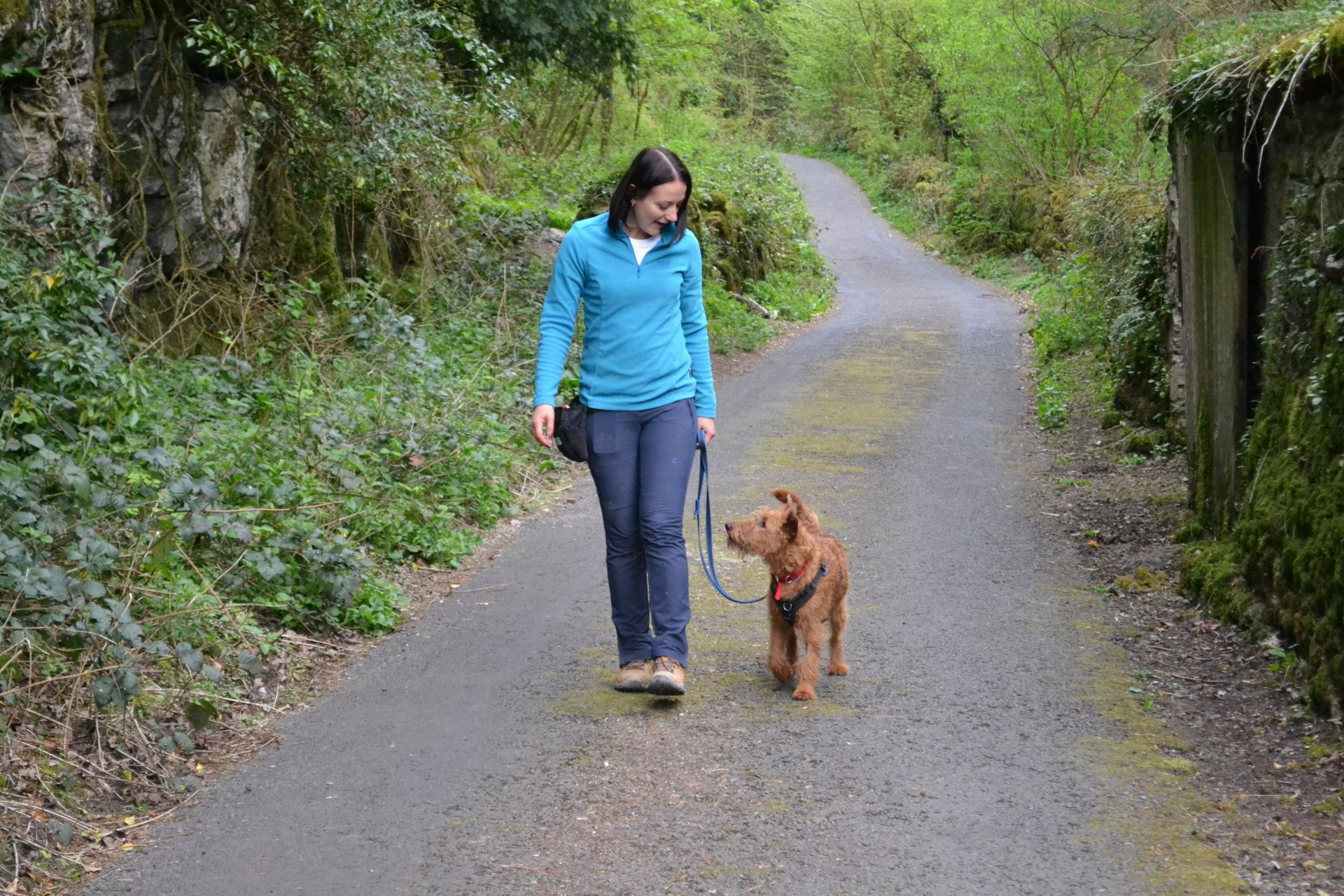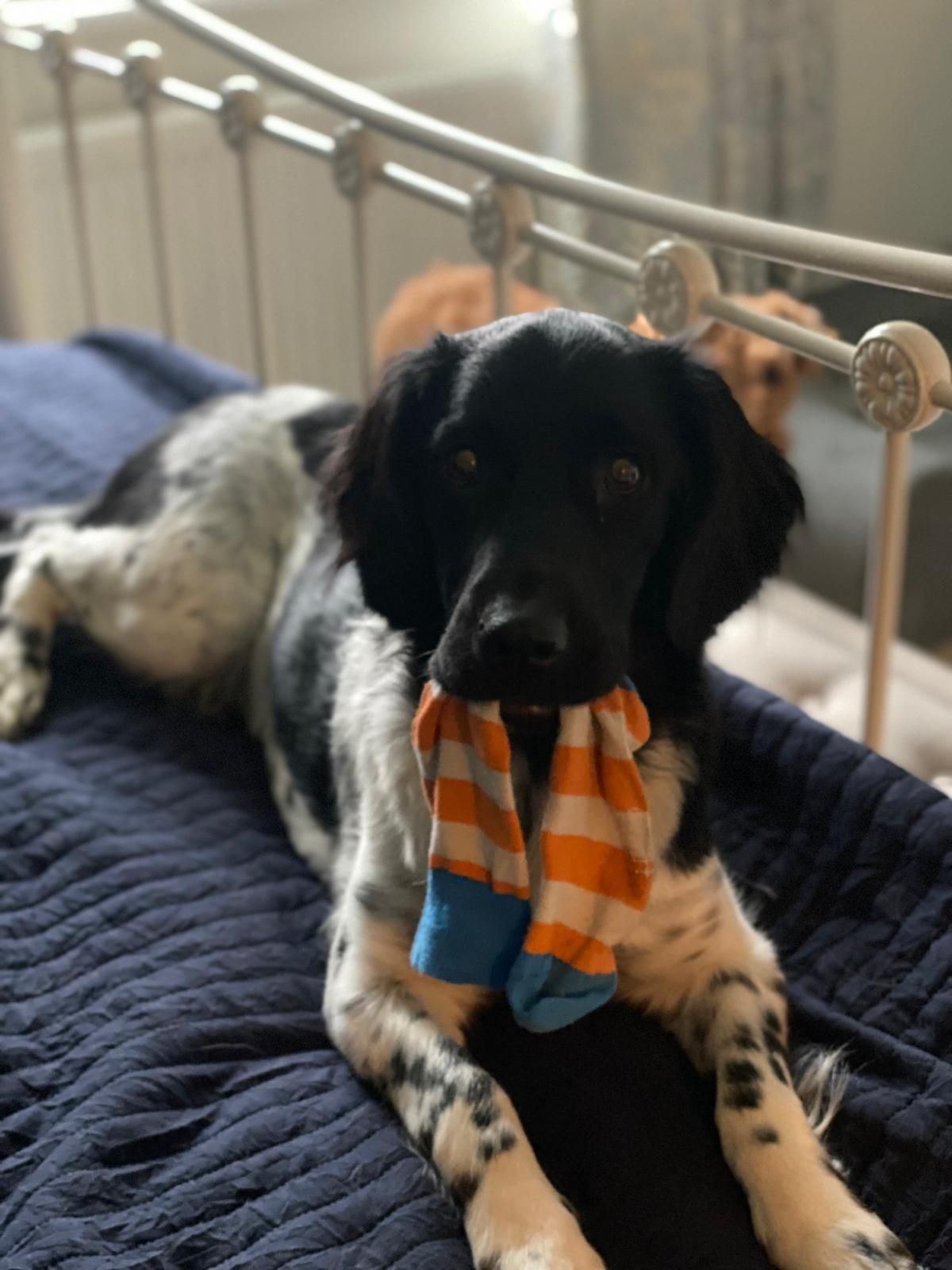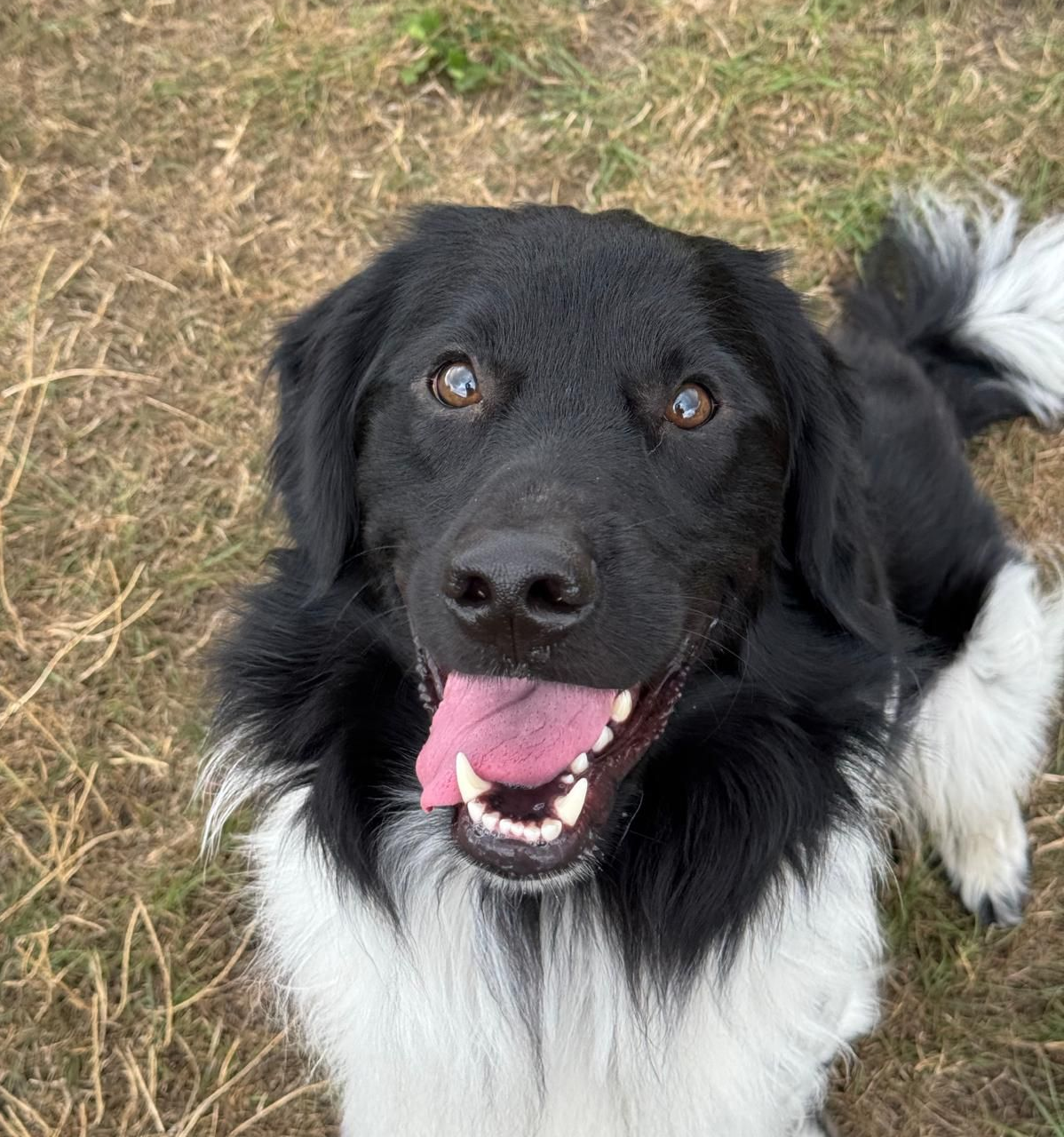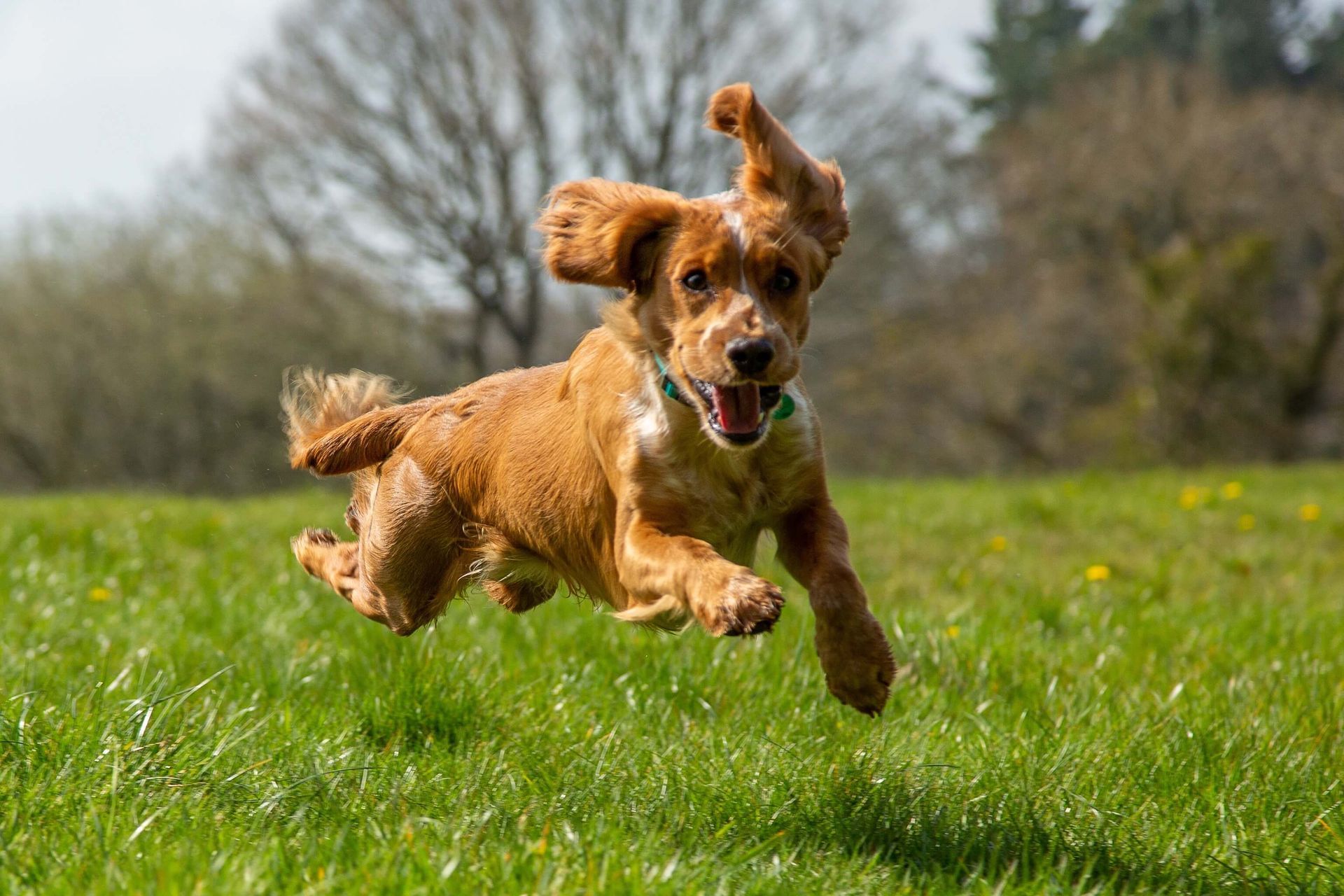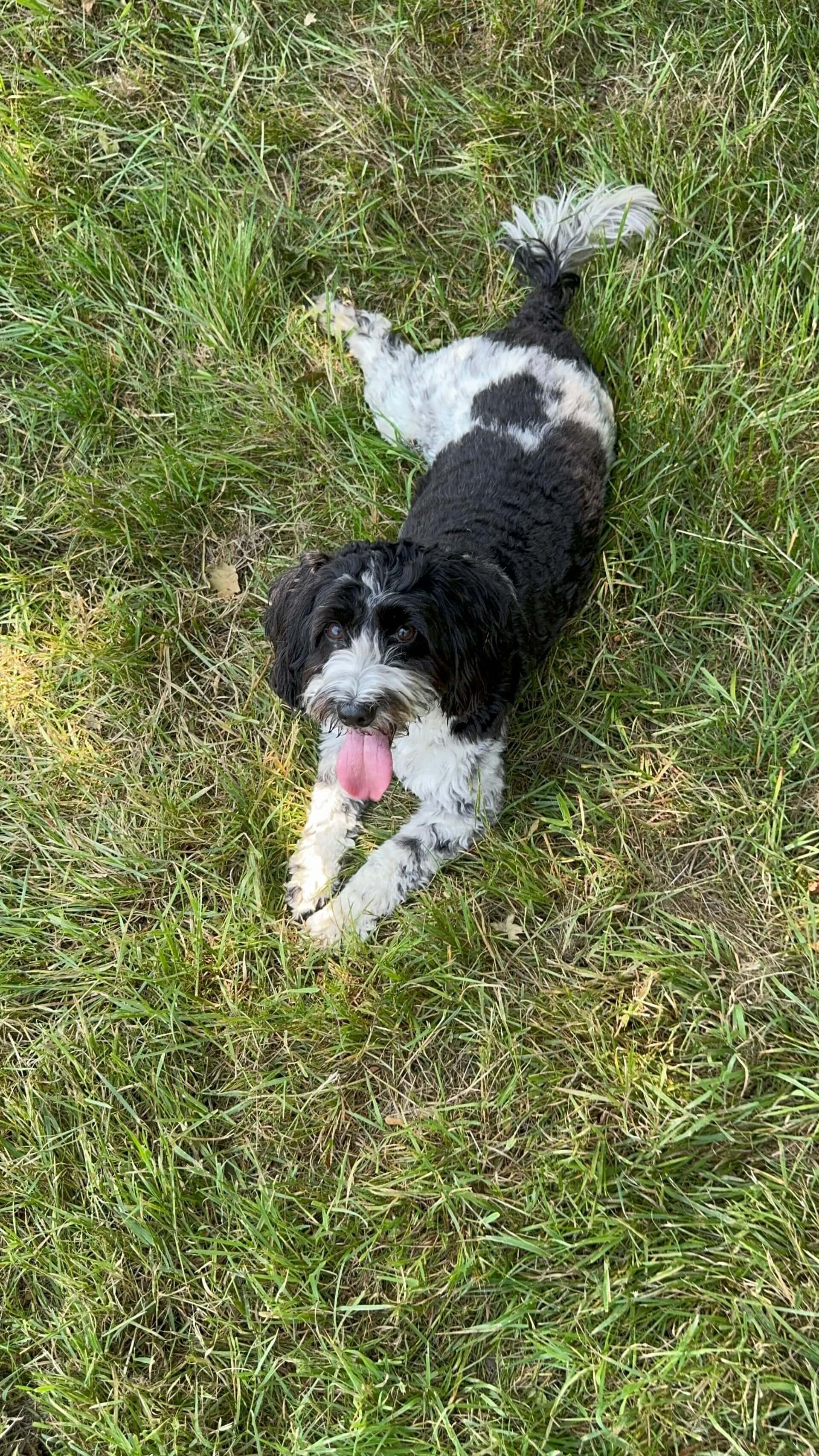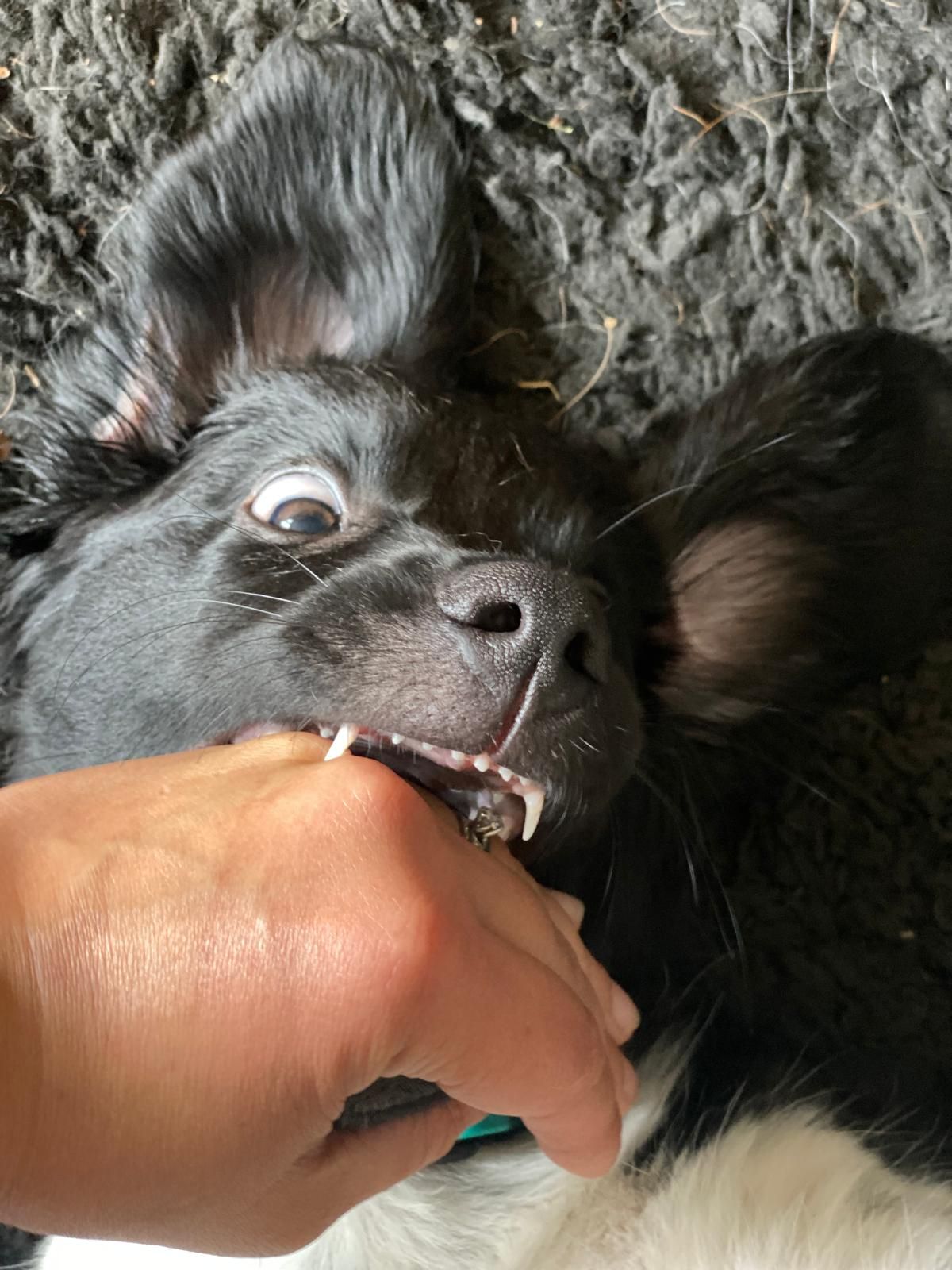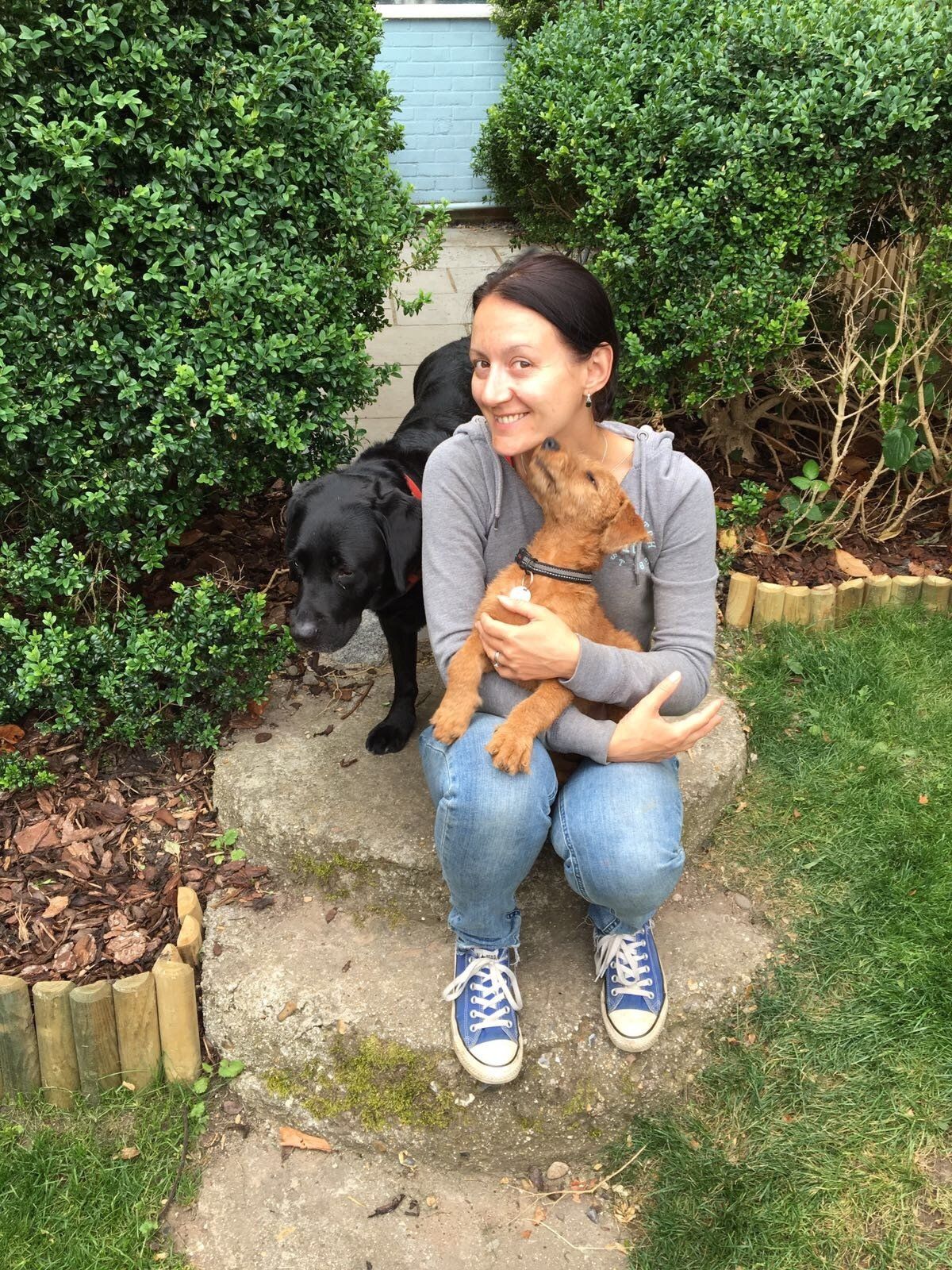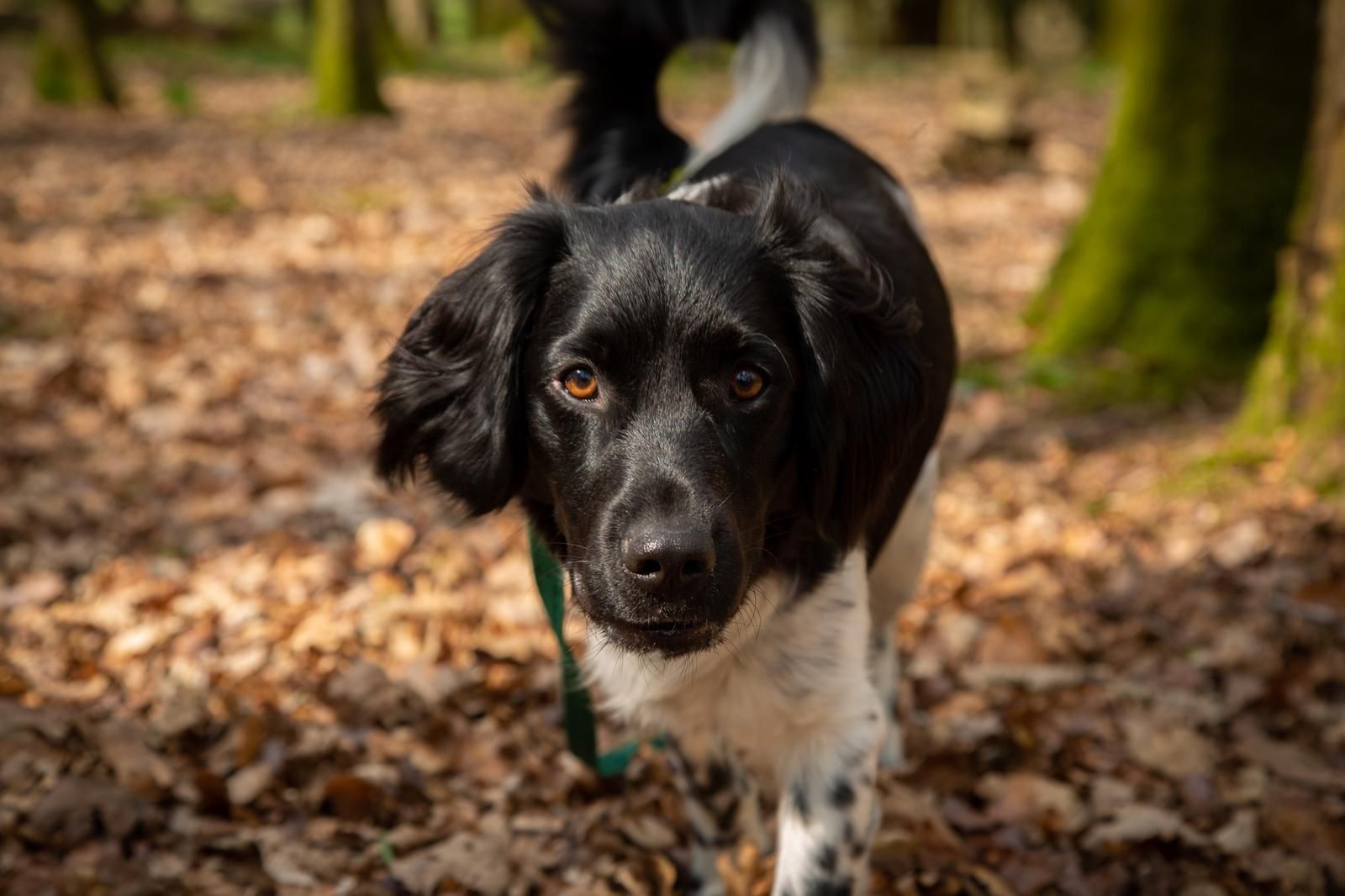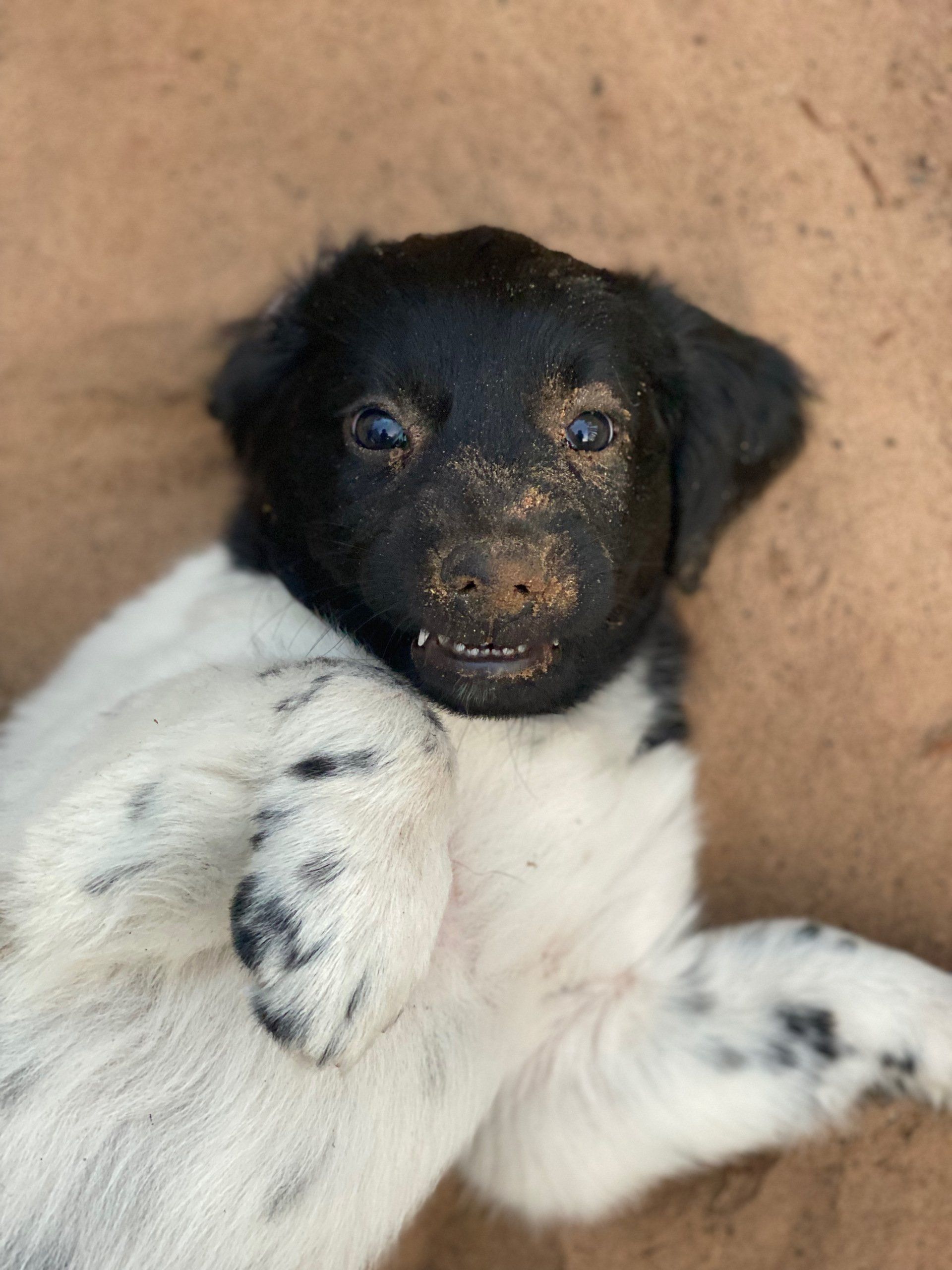Puppy socialisation
What does socialisation really mean?
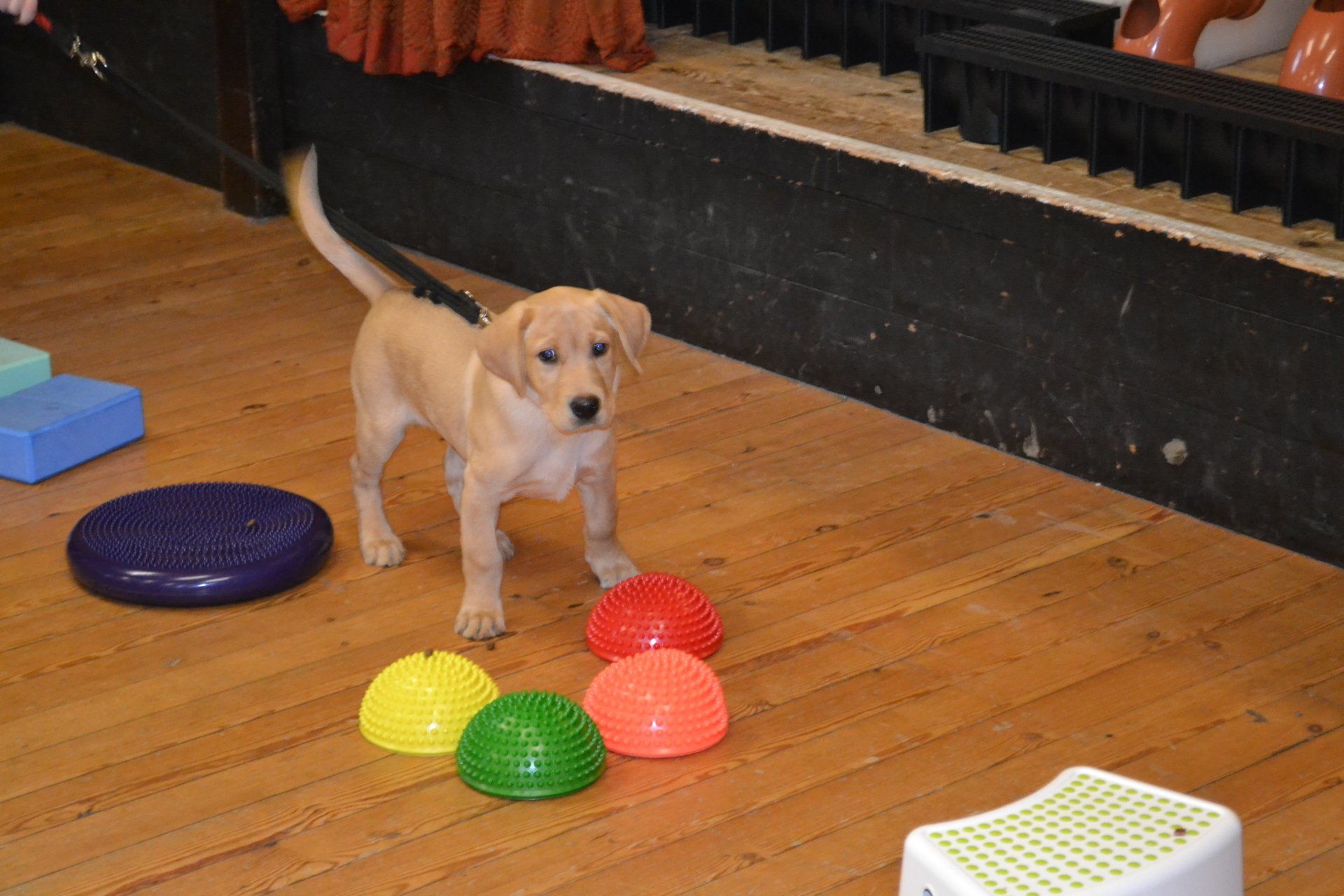
Socialisation… I wish I knew this 9 years ago!
You have just welcomed a new puppy into your life, congratulations!
A word of warning: you are going to get a lot of advice on how to best bring up your four-legged family member from the vet, fellow dog owners, your great aunt Betty, neighbours, the guy in the coffee shop, random people on the street; basically, where puppies are concerned, everyone suddenly becomes an expert!
So, what makes me different from the guy in the coffee shop I hear you ask? I can’t really speak for him – he may actually know what he is talking about – however, I am a qualified dog trainer (full member of the IMDT, and holder of the OCN Level 5 Dog Behaviour, Analysis, Application and Modification qualification) with a keen interest in early socialisation (that means that I read everything I can get my hands on that relates to the subject matter, as well as attending various courses). I am also bringing up my second puppy in two years, so I can relate to pretty much any pain you and your little piranha-with-razor-sharp-teeth, I mean, fluffy bundle of joy, are going through.
The subject that will probably come up the most is socialisation – you need to socialise your puppy, so they can grow up to be the sociable and well-adjusted dog that everybody loves to have around. Failing to socialise your puppy could result in a fearful, anxious or even aggressive adult dog. So go-go-go – socialise now!!!!
This is great advice; however, this is where it becomes very confusing for a new puppy owner. What is socialisation? How do you socialise your puppy properly? How much is too much? How many dogs a day does the puppy need to (annoy) play with? How many people a day does he need to (jump up on) say “Hello” to?
How do you make sense of it all? How do you know that you’re covering all bases? When does the socialisation period actually end?
The socialisation period (or a critical window of socialisation) for puppies is relatively short; it usually closes when the pup is between 12-16 weeks old. The reason why it is so important is that during that time puppy’s curiosity outweighs his fear, so getting him used to new things, sights, smells, sounds, etc. is a lot easier during this time. The challenge is that most of this super important time happens before your puppy is fully vaccinated and should not be exposed to any risk of infections.
However, this does not mean that you cannot start socialising. Here are a few things that I myself use to socialise my dogs, as well as things I suggest new puppy owners try:
- inviting people over to meet your new puppy;
- taking him out in your arms (or you can even use a puppy sling), to watch the world go by;
- taking him to dog friendly places such as pubs, pet stores, garden centres and especially your vet (also in your arms or in a sling);
- taking the puppy to friends’ houses (providing they have secure gardens);
- getting the puppy to meet fully vaccinated dogs (that are good with puppies) in your garden.
These are just some of the things that you can do with your new addition to help them to become a well-adjusted dog.
Am I doing enough?
The approach I suggest is quality vs quantity – I would ensure that all of your puppy’s experiences, be it with people, dogs, other animals or places, are positive.
When you start taking your puppy outside, try and experience as many sights, sounds, smells and textures as possible (walking on different surfaces, meeting different types of people – think gender, race, hairstyles, cyclists with helmets, motorcyclists, people in uniform, etc. – public transport, supermarket, pet stores, garden centres, the list goes on), while making the experience positive – treats, toys, games – it is all about building positive associations.
I make sure that my dogs don’t say hello to every dog or human that we meet on walks. This not only allows me to choose the most appropriate people/dogs for them to have interactions with, but also teaches them that they don’t get to greet EVERY dog/person they meet.
Socialisation is not about your puppy interacting with every dog/person they see on walks, but being able to walk past them politely, while still being able to focus on you.
This is something I learned the hard way. My Labrador is nine now, and we’ve had her since she was eight weeks old. Back then we were told that we had to introduce her to as many dogs and people as was humanly possible (I still remember taking her out for an extra short walk in the evenings if we hadn’t hit that day’s ‘quota’), I even encouraged other people to give her treats (to a Labrador. Really?! What was I thinking?!!). As a result of that ‘socialisation’, she is a socialite – she loves people and her purpose in life is to say hello to them all. The problem with this is that she also likes swimming (it is her second favourite activity after eating) and some people don’t like a wet dog enthusiastically wagging her tail and shaking off next to them (especially as some of our walking routes coincide with the shortest walk from Caversham to Reading station…).
How much is too much?
Watch out for your puppy’s body language (lip licks, looking away, moving away, and tucking their tail under, are some of the subtle signs of stress) and if your puppy displays any signs of being uncomfortable with something, give them space, increase the distance to the irritant until the puppy is comfortable.
I understand that we live in the real world and sometimes you will be put in a situation that might make them uncomfortable, so the more situations your puppy has a positive experience of, the easier it will be for them to cope with unexpected things in the future.
Enrol your puppy in a good puppy class, where the trainer not only uses force free training methods, based on positive reinforcement, but also invests in their continuous professional development (the trainer’s, not the dog’s!), by keeping up-to-date with research on dog’s behaviour and learning.
Never force your puppy to ‘face his fears’, and always have your puppy’s back!
If you want to find out more or need help with a specific behaviour your dog or pup is displaying, please get in touch info@dogsbedogs.co.uk
